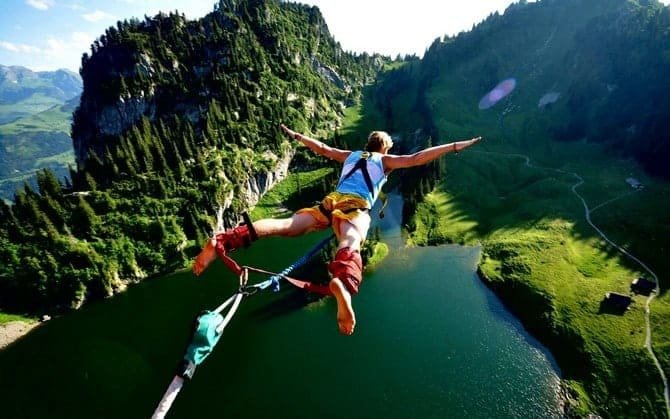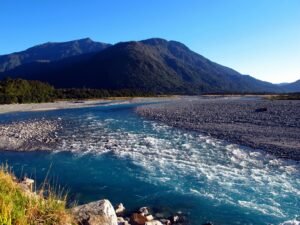
New Zealand is a land of natural wonders, vibrant culture, and welcoming locals. To ensure you have a respectful and enjoyable experience in this remarkable country, it’s crucial to understand the things NOT to do in New Zealand. This comprehensive guide delves deeper into each point, providing valuable insights and context.
1. Don’t Disregard the Māori Culture
The Importance of the Māori Culture: The Māori culture is an integral part of New Zealand’s identity. To respect it, take the time to learn about their traditions, history, and language, Te Reo Māori.
Traditional Greetings: The Hongi: When meeting Māori people, embrace their traditional greeting, the hongi. It involves pressing your nose and forehead together as a sign of respect and unity.
Visiting Marae: Seek Permission: If invited to a marae (Māori meeting grounds), ask for permission before entering. Marae are sacred places with their own customs and protocols.
2. Don’t Litter or Pollute
New Zealand’s Pristine Environment: New Zealand’s unspoiled landscapes are a treasure. Dispose of your trash responsibly and recycle when possible to help maintain its natural beauty.
Responsible Waste Disposal: Use designated bins for rubbish and recycling. In remote areas, pack out what you bring in, leaving no trace of your visit.
3. Don’t Ignore Conservation Efforts
Protecting Native Wildlife: New Zealand is home to unique wildlife, including kiwis, tuataras, and more. Respect conservation efforts by adhering to wildlife protection guidelines.
Respect Wildlife Sanctuaries: Respect protected areas, such as bird sanctuaries and marine reserves. Follow posted rules to ensure the preservation of these fragile ecosystems.
4. Don’t Underestimate the Weather
Unpredictable Weather Patterns: New Zealand’s weather can change rapidly. Check forecasts before outdoor activities and prepare for sudden shifts in conditions.
Dress Appropriately for Outdoor Activities: Layer your clothing for outdoor adventures, and always carry rain gear and warm clothing, especially in mountainous regions.
5. Don’t Speed on New Zealand Roads
Understanding New Zealand’s Roads: New Zealand roads can be challenging, with winding, narrow, and hilly terrain. Drive cautiously and adapt to local road conditions.
Stick to Speed Limits and Road Rules: Adhere to posted speed limits, which vary depending on the road type. Follow road rules, including wearing seat belts at all times.
6. Don’t Neglect Travel Insurance
The Importance of Travel Insurance: Travel insurance is crucial. It can protect you in case of accidents, medical emergencies, trip cancellations, or lost belongings.
Coverage for Outdoor Adventures: Ensure your travel insurance covers outdoor activities like hiking, skiing, or adventure sports you plan to engage in.
7. Don’t Use Drones Without Permission
Drone Regulations in New Zealand: Before flying a drone, familiarize yourself with New Zealand’s strict regulations, including no-fly zones and privacy laws.
Request Permission for Aerial Photography: If you plan to capture aerial footage, seek permission from property owners and respect people’s privacy.
8. Don’t Disrespect Indigenous Land
Sacred Sites and Restricted Areas: Respect sacred Māori sites and restricted areas. Some locations hold spiritual significance and require permission to access.
Follow Signage and Seek Guidance: Observe posted signs and seek guidance from local authorities or cultural advisors if you’re unsure about specific sites’ access.
9. Don’t Forget to Pay the Tourism Tax
The New Zealand International Visitor Conservation and Tourism Levy (IVL): The IVL helps fund conservation and infrastructure. Pay it when applying for a visa or upon arrival.
10. Don’t Bring Food to Protected Areas
Biosecurity Measures: New Zealand has strict biosecurity regulations to prevent invasive species from entering the country. Declare all food items at customs.
Declare Food Items at Customs: Be honest on your arrival card about any food you’re carrying. Dispose of it in designated bins if necessary.
11. Don’t Engage in Animal Exploitation
Respect for Animals in Tourism: Choose wildlife encounters that prioritize the well-being of animals over profit. Avoid activities that involve exploitation or stress to animals.
Avoid Encounters with Exploited Wildlife: Research wildlife experiences and avoid venues where animals are used for entertainment, like riding elephants or taking photos with captive animals.
12. Don’t Ignore Safety Precautions in the Outdoors
The Importance of Outdoor Safety: Whether hiking, skiing, or kayaking, prioritize safety. Understand your limitations and take appropriate precautions.
Inform Others of Your Plans: Before heading into the outdoors, inform someone of your itinerary, expected return time, and contact them when you’re back safely.
13. Don’t Disrupt Geothermal Areas
Geothermal Safety: Stay on marked paths in geothermal areas. Stepping off designated paths can lead to accidents or damage fragile ecosystems.
Stay on Marked Paths: Resist the urge to touch or throw objects into geothermal pools, as this can disrupt delicate geological balances.
14. Don’t Be Impolite or Rude
Kiwi Friendliness: Kiwis are known for their friendliness and politeness. Return the favor by being respectful, polite, and courteous.
Common Courtesies in New Zealand: Use “please” and “thank you” liberally, queue patiently, and maintain a friendly demeanor when interacting with locals.
15. Don’t Disregard Māori Place Names
Pronunciation of Place Names: Learn how to pronounce place names correctly to show respect for the Māori language and culture.
Show Respect by Using Correct Names: Refer to locations by their Māori names whenever possible, recognizing their cultural significance.
16. Don’t Engage in Cultural Appropriation
Understanding Cultural Appropriation: Educate yourself about cultural appropriation, and avoid using cultural symbols, attire, or practices that are not your own.
Appreciate Māori Culture with Respect: You can appreciate and learn from Māori culture, but do so respectfully and without co-opting elements that are not meant for outsiders.
17. Don’t Haggle Over Prices
New Zealand’s Pricing Norms: Haggling is not a common practice in New Zealand. Prices are generally fixed, and attempting to negotiate may be seen as rude.
Bargaining vs. Polite Negotiation: If you believe a price is unfair, politely discuss it with the vendor rather than engaging in aggressive haggling.
18. Don’t Disrespect Private Property
Respect for Private Land: Observe property boundaries and respect “no trespassing” signs. Seek permission before entering private property.
Seek Permission Before Entering: If you’d like to explore an area on private land, contact the landowner and request their consent.
19. Don’t Camp Where It’s Prohibited
Camping Rules and Regulations: Familiarize yourself with camping regulations, which vary by region. Camp only in designated areas or seek permission from landowners.
Use Designated Campsites: New Zealand offers many beautiful campgrounds. Choose these sites for a legal and enjoyable camping experience.
20. Don’t Ignore Wildlife Crossing Signs
Kiwi Road Signs: Pay attention to road signs indicating wildlife crossings. New Zealand is home to diverse wildlife, and accidents can be devastating.
Reduce Speed Near Wildlife Crossings: Slow down and be prepared to stop if you see these signs, especially at dawn and dusk when animals are more active.
21. Don’t Underestimate the Power of the Sea
Treacherous Coastal Waters: New Zealand’s coastlines can be dangerous due to strong currents and unpredictable tides. Take caution when swimming or surfing.
Safety When Swimming and Surfing: Choose beaches with lifeguards, swim between the flags, and respect local advice on safe swimming areas.
22. Don’t Hike Without Proper Gear
Essential Hiking Gear: Before embarking on a hike, ensure you have proper gear, including appropriate footwear, clothing, and navigation tools.
Respect for Hiking Trails: Stick to designated trails, as venturing off can harm fragile ecosystems and put you at risk.
23. Don’t Attempt Risky Outdoor Activities Without Training
Safety Precautions for Extreme Sports: If you plan to partake in adventure sports like bungee jumping or skydiving, choose reputable operators, and follow safety guidelines.
Professional Guidance for Adventures: For activities like glacier hiking or white-water rafting, rely on trained guides who can ensure your safety.
24. Don’t Deface Natural Landmarks
Graffiti and Vandalism: Defacing natural landmarks with graffiti or carvings is illegal and disrespectful. Preserve these unique sites for future generations.
Preserve Natural Beauty: Take photographs and memories, but leave rocks, trees, and historical sites untouched.
25. Don’t Bring Banned Substances
Strict Drug Laws: New Zealand has strict drug laws. Do not bring prohibited substances into the country, and understand that penalties for drug offenses are severe.
Penalties for Drug Offenses: If caught with illegal drugs, you could face arrest, prosecution, and imprisonment.
26. Don’t Forget to Pay Tolls
Electronic Toll Roads: New Zealand uses electronic tolling systems on some roads. Familiarize yourself with how they work to avoid fines.
How to Pay Tolls: Register your vehicle with the toll provider or pay tolls online within the specified time frame.
27. Don’t Smoke in Public Places
Smoking Laws in New Zealand: Smoking is banned in many public places, including bars, restaurants, and indoor spaces. Respect these laws.
Designated Smoking Areas: Use designated smoking areas and dispose of cigarette butts responsibly.
28. Don’t Enter Department of Conservation (DOC) Huts Without a Booking
Booking DOC Huts and Campsites: To stay in DOC huts or campsites, make reservations in advance. These bookings help manage visitor numbers.
Respect Others’ Reservations: Do not occupy huts or campsites without a booking, as this can disrupt others’ plans.
29. Don’t Overstay Your Visa
Visa and Immigration Requirements: Familiarize yourself with New Zealand’s visa requirements. Overstaying your visa can result in deportation and future travel restrictions.
Extension and Overstay Penalties: Apply for visa extensions in advance if necessary, and abide by your visa’s conditions.
30. Don’t Use Offensive Language
Respect for Language and Culture: Be mindful of the language you use. Avoid offensive terms, slurs, or derogatory language that may cause offense.
Avoid Offensive Terms: Respect diversity and use inclusive language that promotes a positive atmosphere.
31. Don’t Disregard Wildlife Viewing Guidelines
Responsible Wildlife Viewing: When observing wildlife, maintain a safe distance to avoid causing stress or harm to the animals.
Maintain a Safe Distance: Use binoculars or zoom lenses for close-up views and adhere to any guidelines provided by guides or rangers.
32. Don’t Forget to File an Intentions Form
Outdoor Intentions Form: Before heading into remote areas, fill out an intentions form and leave it with a responsible person. Include details about your planned trip and expected return time.
Safety Measures for Outdoor Activities: This form serves as a safety measure in case you encounter difficulties while exploring remote regions.
33. Don’t Ignore Road Closure Signs
Road Closures in New Zealand: Road closures are common due to landslides, avalanches, or adverse weather. Obey closure signs and follow alternative routes.
Obeying Signs for Safety: Respect road closures to avoid accidents and disruptions caused by unstable or dangerous conditions.
34. Don’t Engage in Illegal Fishing
Fishing Regulations: Fishing laws in New Zealand aim to protect marine life and ensure sustainable fisheries. Familiarize yourself with catch limits and size restrictions.
Legal Catch Limits and Size Restrictions: Adhere to fishing regulations to protect fish populations and the environment.
35. Don’t Hike Without Checking Weather Updates
Unpredictable Weather Conditions: New Zealand’s weather can change rapidly, especially in mountainous areas. Check weather forecasts and updates before heading out.
Safety Tips for Hikers: If adverse weather is expected, consider postponing your hike, or be prepared to turn back if conditions deteriorate.
36. Don’t Leave Rubbish Behind
Leave No Trace Principles: Practice Leave No Trace principles when exploring New Zealand’s wilderness. Pack out what you bring in, leaving nature pristine.
Pack Out What You Bring In: Dispose of rubbish and litter properly, even in remote areas. Trash left behind can harm wildlife and ecosystems.
37. Don’t Approach Seals or Sea Lions
Seal and Sea Lion Safety: Seals and sea lions are wild animals and can be unpredictable. Maintain a safe distance when observing them.
Stay a Safe Distance Away: Respect their space and avoid getting too close, as they may perceive you as a threat.
38. Don’t Ignore Cultural Performers’ Requests
Photography and Filming Guidelines: During cultural performances, follow guidelines provided by performers or guides regarding photography and filming.
Respect Performers’ Wishes: If asked not to take photos or record videos during a performance, comply with these requests.
39. Don’t Drink and Drive
Strict Drink-Driving Laws: New Zealand has strict drink-driving laws with severe penalties. The legal blood alcohol limit is low, so avoid drinking and driving altogether.
Alcohol Limits and Penalties: Penalties for drink-driving can include fines, license suspension, and imprisonment.
40. Don’t Climb on Moeraki Boulders
Protecting Moeraki Boulders: These spherical boulders are unique geological formations. Climbing on them can damage the delicate structures and is prohibited.
Admire from a Distance: Enjoy these natural wonders from afar and take photos without touching or climbing on them.
41. Don’t Be Late for Appointments
Punctuality in New Zealand: Punctuality is highly regarded in New Zealand. Arrive on time for appointments and meetings as a sign of respect.
Respect for Others’ Time: Being late can be seen as disrespectful and may inconvenience others.
42. Don’t Ignore Customs Declarations
Customs Regulations: Follow customs regulations when entering New Zealand. Declare all items you’re bringing into the country, including food, gifts, and items purchased abroad.
Declare Items at Customs: Honesty is key at customs. Declare everything you’re required to, as failing to do so can result in fines.
43. Don’t Feed the Wildlife
Wildlife and Food Safety: Feeding wildlife is discouraged. Human food can harm animals’ health and alter their natural behavior.
Avoid Harmful Feeding Practices: Respect wildlife by observing them without offering them food.
44. Don’t Take Samples from Hot Springs
Protecting Geothermal Features: Hot springs are fragile and can be easily contaminated. Do not collect samples or interfere with these natural wonders.
Avoid Contaminating Springs: Respect the unique geothermal features by refraining from actions that can harm them.
45. Don’t Disrespect the Haka
Understanding the Haka: The haka is a powerful Māori cultural performance. It’s a mark of respect and should not be mocked or trivialized.
Show Respect During Performances: When witnessing a haka, maintain a respectful and solemn demeanor.
46. Don’t Disregard Local Advice
Seek Local Knowledge: Take advantage of local knowledge and advice. Locals can provide insights, safety tips, and recommendations for a more authentic experience.
Benefit from Insider Tips: Don’t hesitate to ask locals for recommendations on where to eat, what to see, and how to make the most of your visit.
Conclusion
As you embark on your journey through New Zealand, keep these 50 things NOT to do in mind. By respecting the Māori culture, nature, and local customs, you’ll not only have a memorable experience but also contribute to the preservation of New Zealand’s unique charm for generations to come. Enjoy your travels in Aotearoa, the Land of the Long White Cloud, and leave only footprints as you explore its breathtaking landscapes and vibrant culture.




